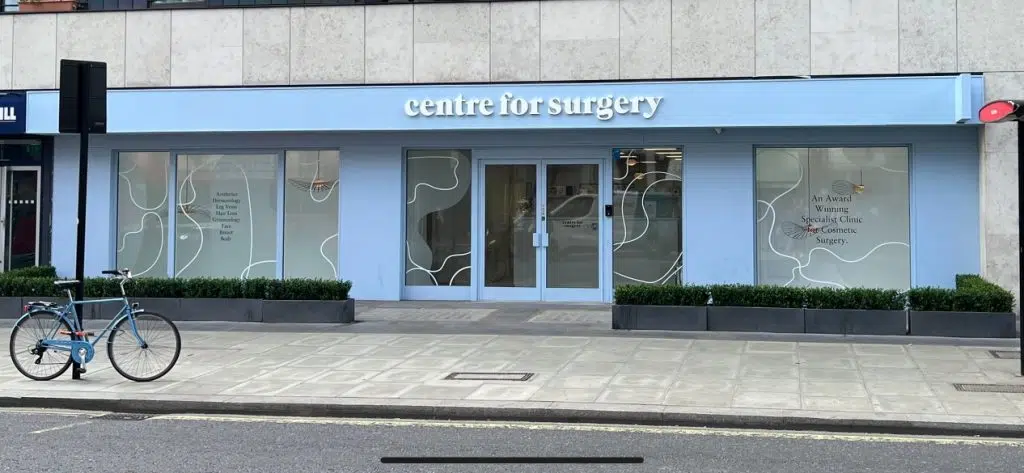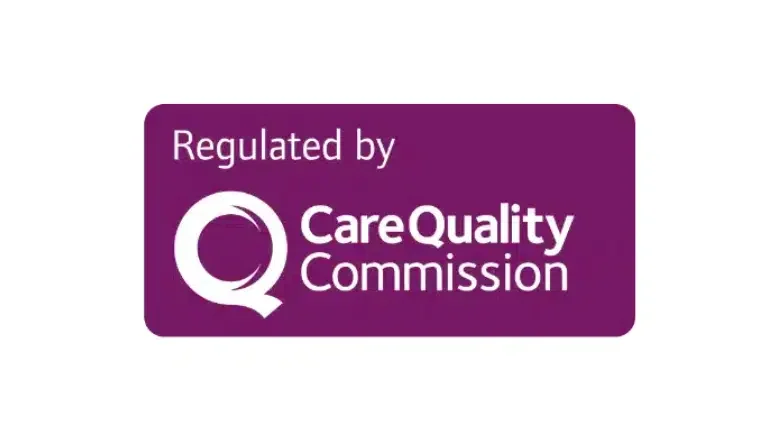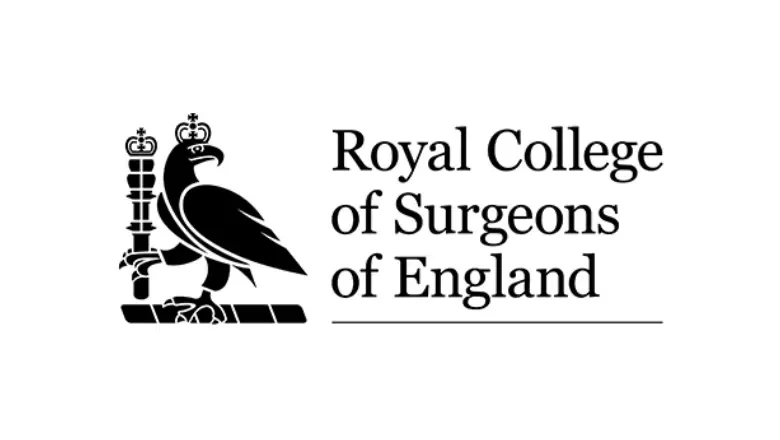The Importance of Weight Management for Tummy Tuck Surgery
A tummy tuck, or abdominoplasty, is a surgical procedure designed to remove excess fat and skin from the abdominal area while tightening the underlying muscles. This article will explore the importance of weight management for tummy tuck surgery and how this procedure can help individuals achieve their desired body aesthetics.
The Impact of Weight on Self-Esteem and Confidence
Being overweight can negatively impact self-esteem and confidence, which can limit participation in social gatherings and other activities. Despite following strict diets and performing heavy exercises, losing excess skin can be a daunting task. Even with good muscle mass, excess fat and skin surrounding the muscles can result in an unappealing body contour. Abdominoplasty surgery helps to recontour the body and improve body aesthetics, providing individuals with the confidence they need to participate in social activities and enjoy their lives to the fullest.
Stretch Marks After Pregnancy or Weight Loss
Stretch marks are a common occurrence after pregnancy or significant weight loss, caused by skin and muscle stretching. While many topical treatments, skin tightening tools, and scar removal creams are available in the market, they are not always effective. Tummy tuck surgery after weight loss can be an effective option for individuals seeking to tighten their loose belly or treat diastasis recti after pregnancy.
The Importance of Achieving an Optimal Weight for Tummy Tuck Surgery
Maintaining an ideal weight or body mass index (BMI) before tummy tuck surgery is crucial for maximising surgical outcomes and reducing surgical risks. Our plastic surgeons at Centre for Surgery highly recommend that patients lose weight before undergoing abdominoplasty to achieve their desired results. Weight loss can improve overall health and reduce surgical risks, such as bleeding and infections, during and after the procedure.
Understanding Different Types of Tummy Tucks and Choosing the Best Option
Several types of tummy tucks are suited to specific needs and desired outcomes. The following are the most common types of abdominoplasty procedures:
Standard or Traditional Tummy Tuck – Full Abdominoplasty with Muscle Repair
- The most common type of tummy tuck
- Addresses excess skin and fat in the lower abdomen
- Tightens remaining skin and muscles
- Removes stretch marks below the belly button
- Involves an incision from hip to hip, above the pubic area, and another around the belly button
- Suitable for women with multiple pregnancies or those with C-section scars
RELATED: Tummy Tuck after C-Section for a Flat and Toned Stomach
Mini Tummy Tuck – Skin Only, No Muscle Repair
- A mini tummy tuck is ideal for those with a small amount of excess fat and skin below the belly button
- Addresses a mild sagging lower abdomen
- Involves a smaller incision along the bikini line
- May not require repositioning of the belly button
Extended Tummy Tuck
- Extended tummy tucks are suitable for patients with significant weight loss or those needing extensive skin and fat removal from the abdomen, lower back, and love handle regions
- More invasive than traditional tummy tuck surgery
- Involves a longer incision along the bikini line, extending to the back of each hip
- Repositions the belly button and may be combined with liposuction
Reverse Tummy Tuck
- A reverse tummy tuck targets the upper part of the abdomen, just below the breasts
- Involves one long incision or two small ones beneath the breasts
- Addresses excess skin and fat in the upper abdominal area
- Not commonly offered due to potential suboptimal results
Body Lift and Abdominoplasty for Significant Weight Loss Patients (Post-Bariatric)
- Addresses excess skin, fat, and tissue for patients with substantial weight loss
- Belt Lipectomy or Circumferential Abdominoplasty: Removes excess skin around the midsection, with a belt-like incision
- Fleur De Lis Abdominoplasty (also known as Corset Abdominoplasty): Removes excess skin with a vertical and horizontal incision
The Benefits of an Ideal BMI for Tummy Tuck Surgery
Tummy tuck surgery, or abdominoplasty, is a cosmetic procedure designed to remove excess fat and skin from the abdominal area and tighten underlying muscles. In this article, we will explore the benefits of maintaining an ideal BMI for tummy tuck surgery and how it can lead to better surgical outcomes.
Faster Recovery
Maintaining an ideal weight helps promote faster recovery after surgery. Obesity can impede wound healing, leading to longer recovery times and an increased risk of complications. By maintaining an ideal BMI, patients can promote better healing and a faster recovery time after surgery.
Lower Risk of Complications
Maintaining an ideal BMI can also help reduce the risk of surgical complications, such as bleeding and infections, during and after the procedure. By reducing the risk of complications, patients can ensure a smoother and more successful surgery and recovery.
Less Postoperative Pain and Infection
Maintaining an ideal BMI can reduce the risk of complications and lead to less postoperative pain and infection. By promoting better healing, patients can experience less discomfort and a reduced risk of infection, leading to a more comfortable and successful recovery.
Maintained Body Contour and Sustained Achievement of Goals
Maintaining an ideal BMI can also help ensure that patients maintain their desired body contour long after the surgery. By achieving a healthy weight and maintaining it after the procedure, patients can enjoy the sustained achievement of their goals and improved body aesthetics for years to come.
The Importance of BMI for Tummy Tuck Surgery
Tummy tuck surgery, or abdominoplasty, is a cosmetic procedure that removes excess fat and skin from the abdominal area while tightening the underlying muscles. In this article, we will explore the importance of BMI for tummy tuck surgery, including what BMI is ideal and why it is important to achieve a healthy weight before undergoing plastic surgery.
BMI Guidelines for Tummy Tuck Surgery
A BMI below 30 is generally considered an ideal BMI for tummy tuck surgery, but good results can still be achieved even if you are overweight. The maximum acceptable BMI for tummy tuck surgery is 35, and the closer you are to your BMI, the better the final result will be. If your BMI is between 30 and 35, it is important to consult with your surgeon to determine your suitability for surgery.
Why BMI is Important for Tummy Tuck Surgery
Achieving a recommended BMI is crucial for minimising the risks associated with both the anaesthesia and the procedure itself. Patients with a BMI over 30 are at greater risk during any surgery, not just cosmetic procedures. Obese patients often have other health issues, such as diabetes, heart disease, and joint problems, which further increase the risks associated with surgery.
The Importance of Ideal Weight for Tummy Tuck Surgery
In addition to BMI, achieving an ideal weight is also crucial for tummy tuck surgery. The ideal weight for tummy tuck surgery is typically when you are around 5-7kg from your goal weight. This is important because weight loss after tummy tuck surgery, or gaining weight, can undo the contour achieved through the procedure. The exact weight can vary based on factors such as height, age, and gender, but our plastic surgeons recommend being close to your target goal weight prior to undergoing tummy tuck surgery.
Understanding BMI and Its Impact on Surgical Outcomes
Body Mass Index, commonly known as BMI, is a numerical value that helps to classify and categorize an individual’s body weight in relation to their height. In simpler terms, BMI is a value that allows us to identify whether a person is underweight, within a healthy weight range, overweight, or obese based on their height and weight. To calculate the BMI, one’s body weight (in kilograms) is divided by the square of their height (in meters). This numerical value provides a general estimate of an individual’s health. It is important to note that BMI does not account for factors such as gender, age, existing health conditions, or variations in muscle mass and body composition.
Common BMI Categories
The general categories for BMI ranges are as follows:
- Underweight: BMI below 18
- Healthy Weight: BMI between 18 and 25
- Overweight: BMI between 25 and 30
- Obese: BMI between 30 and 35
- Severely Obese: BMI between 35 and 40
- Morbidly Obese: BMI above 40
BMI’s Influence on Surgery Results
BMI plays a crucial role in determining the outcomes of surgical procedures, including the longevity of the results and their overall aesthetic appeal. For plastic surgery at Centre for Surgery, the maximum allowed BMI is 35, although a BMI closer to 30 is generally preferred by surgeons.
Potential Risks of Surgery with a High BMI
Challenges with Anesthesia Administration
Anaesthetics are medications that induce a state of unconsciousness in patients during surgery. When administering anaesthetics to obese individuals, healthcare professionals may face several common issues, including:
- Determining the appropriate dosage of anaesthetics.
- Identifying the vein used for administering anaesthetics and other emergency medications intravenously.
- Navigating the presence of excess fatty tissue, which can interfere with the administration of medications.
- Experiencing difficulty while inserting the breathing tube.
These potential complications highlight the importance of understanding BMI and its impact on surgical outcomes. Patients and healthcare providers must work together to ensure that the risks associated with high BMI are properly managed to achieve the best possible surgical results.
Determining Your Readiness for a Tummy Tuck Procedure
If your BMI falls within the ideal or slightly overweight range, you might be contemplating whether you are a suitable candidate for a tummy tuck. While a healthy BMI is an essential indicator of overall well-being, there are additional factors to consider when determining your readiness for this surgical procedure.
Key Factors to Consider Before Undergoing a Tummy Tuck
Achieving a maintainable weight
You should be within 8 kg of your ideal weight before undergoing a tummy tuck. This guideline is practical and achievable for most people, without being overly restrictive.
Stable weight for an extended period
Ensure that your weight has remained stable for at least six months, ideally one year. Frequent weight fluctuations within a year are not considered stable.
Healthy eating and lifestyle habits
Adopt and maintain a healthy diet and lifestyle before and after the surgery to promote optimal healing and long-term results.
Good physical health
Being in good health with no significant medical conditions reduces the risks and complications associated with surgery and expedites recovery.
No future pregnancies or significant weight loss planned
Pregnancy and weight fluctuations following the surgery can weaken and separate abdominal muscles, altering the shape and contour of your abdomen. This may necessitate a secondary surgery to address the changes.
Non-smoker
Smoking negatively affects the recovery process and wound healing. Surgeons typically require patients to quit smoking and prioritize their health before, during, and after the surgery.
Realistic expectations
Understand that a tummy tuck is not a weight-loss operation but a contouring procedure. The surgery aims to repair muscles, remove excess fat and skin, and reshape the waistline. If you require weight-loss surgery, consult a bariatric surgeon first. A plastic surgeon can then assist with contouring after your weight loss journey is complete.
Weight Loss from a Tummy Tuck Procedure
The amount of weight loss resulting from a tummy tuck procedure varies significantly depending on the individual’s pre-surgery excess skin and fat. In some cases, the weight loss may be minimal, only a few kilograms, while others may experience a more substantial loss of 5-8 kg. However, it is essential to understand that this is not the outcome for everyone.
RELATED: Can tummy tucks lead to long-term weight loss?
During the surgery, the surgeon removes excess skin, tissue, and fat, which contributes to overall weight loss. This amount is often less than what patients anticipate. Nonetheless, the primary goal of a tummy tuck is not to lose weight but to improve the body’s contour and appearance.
A tummy tuck procedure can be a significant milestone in an individual’s journey towards a healthier and more confident self. It is crucial to maintain realistic expectations and remember that the surgery is meant to enhance one’s body shape rather than serve as a primary means of weight loss.
Anticipating Dress Size Changes Following a Tummy Tuck
It is crucial for patients considering a tummy tuck to maintain realistic expectations about the results. A tummy tuck is not a weight-loss procedure but a body contouring surgery designed to improve the appearance of the abdomen.
Typically, patients may experience a reduction of one or two clothing sizes as a result of the procedure. This change is primarily due to the removal of excess skin and fat, and the tightening of abdominal muscles, resulting in a smoother, flatter abdomen.
As your body shape and overall proportions improve, you will likely notice a difference in how your clothes fit. This transformation can lead to increased self-confidence and a more positive self-image. However, it is essential to remember that a tummy tuck is not a substitute for a healthy lifestyle, and maintaining the results requires a balanced diet and regular exercise.
Weight Loss Strategies Prior to Tummy Tuck Surgery
If you’re planning to lose weight before undergoing a tummy tuck, consider implementing the following healthy strategies:
Avoid crash diets
Opt for a balanced, nutrient-rich diet instead of rapid weight loss methods that can be harmful and unsustainable. Emphasize whole, fresh foods for optimal health.
Stay motivated
Healthy eating should be a long-term lifestyle choice that benefits one’s overall mental and physical well-being.
Reduce sugar intake
Minimise consumption of high-sugar foods, which can negatively impact your immune system and lead to increased fat storage. Opt for homemade healthy treats over store-bought options.
Manage portion sizes
Use smaller plates and eat smaller portions to help you feel full more quickly. Eat slowly and mindfully.
Limit salt intake
Excessive salt consumption can lead to water retention, high blood pressure, and weight gain. Opt for low-sodium or salt-free meals to promote a healthier lifestyle.
Plan your meals
Prepare meals in advance to ensure you’re consuming nutrient-dense, low-sodium options.
Don’t skip meals
Avoid long periods without eating, as this can slow your metabolism and increase hunger. Have a healthy snack every 2-3 hours to boost your metabolism and maintain energy levels.
Prioritise sleep
Ensure you get adequate sleep to help regulate digestion, metabolism, and emotional eating patterns.
Incorporate strength exercises
Combine strength training with cardiovascular exercises to build muscle, increase metabolism, and burn fat more effectively. Consult with a healthcare professional before starting a new exercise regimen and consider working with a personal trainer.
Stay hydrated
Drink plenty of water to support weight loss and overall health.
Consume water-rich foods
Incorporate foods with high water content, such as tomatoes, watermelon, and cucumbers, into your meals to reduce overall calorie intake.
Increase fibre intake
Eat fibre-rich foods like avocados, pears, and berries to help you feel fuller for longer periods, reducing the likelihood of overeating.
Schedule a tummy tuck consultation at Centre for Surgery
At Centre for Surgery, we pride ourselves on providing comprehensive, patient-centred care, with a focus on both surgical expertise and exceptional patient support. Our team of highly skilled, board-certified plastic surgeons and medical professionals are dedicated to helping you achieve the best possible results for your cosmetic and reconstructive needs.
Our Philosophy
We believe in a holistic approach to patient care, ensuring that each individual’s unique needs and desires are met. Our mission is to provide a safe, supportive, and comfortable environment for patients to discuss their concerns and goals openly. We strive to deliver personalised treatment plans tailored to each patient, combining state-of-the-art surgical techniques with the highest level of patient care.
Our Services
At Centre for Surgery, we offer a wide range of cosmetic and reconstructive surgical procedures, including:
- Tummy Tucks (Abdominoplasty)
- Breast Surgery (Augmentation, Reduction, and Lift)
- Facial Surgery (Rhinoplasty, Facelift, and Eyelid Surgery)
- Body Contouring (Liposuction, Arm and Thigh Lifts)
- Post-Bariatric Surgery (Body Lift, Fleur De Lis Abdominoplasty)
In addition to surgical procedures, we also provide non-surgical treatments such as injectables, dermal fillers, and laser treatments to help our patients achieve their aesthetic goals without the need for surgery.
Our Commitment to Patient Safety and Satisfaction
Patient safety and satisfaction are at the core of our practice. We adhere to the highest standards of patient care and safety by employing state-of-the-art technology and surgical techniques. Our team of surgeons and medical professionals are dedicated to staying current with the latest advancements in their respective fields, ensuring that our patients receive the best possible care.
Consultations and Support
We understand the importance of open communication and education in achieving a successful surgical outcome. Our consultations are designed to provide all the necessary information and guidance, ensuring you feel confident and comfortable with your chosen procedure. Throughout the process, our team will support and guide you, answering any questions and addressing any concerns you may have.
At Centre for Surgery, our commitment to excellence, combined with our compassionate and personalised approach to patient care, sets us apart as a leading provider of cosmetic and reconstructive surgery in London. We invite you to experience the difference and take the first step towards achieving your aesthetic goals.
RELATED: How much does a tummy tuck cost?










